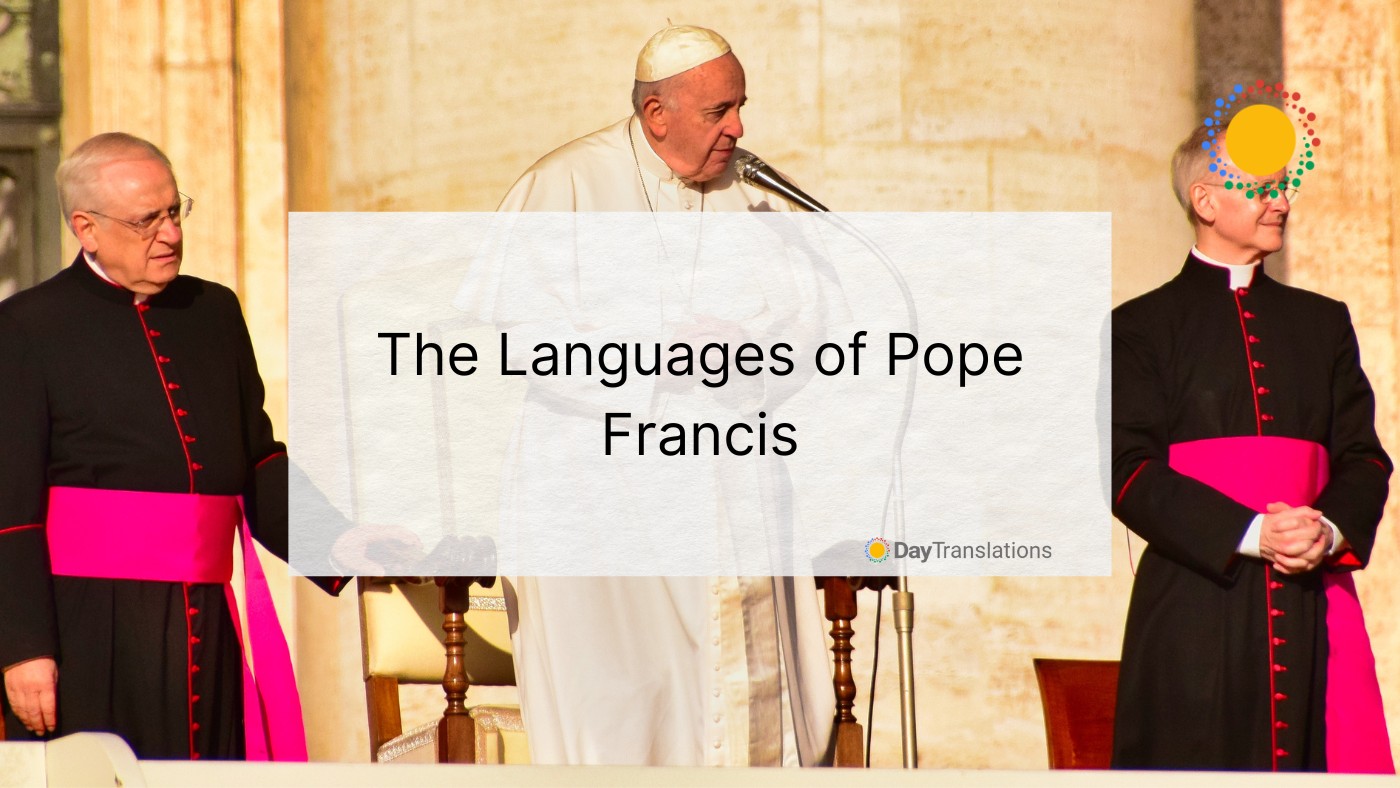Updated 2022
Pope Francis is an educated man in the field of language and culture. Yet, it is quite understandable for one to favor a language to avoid misinterpretations, misquotations, or incorrect contexts. According to the Vatican, the Argentinian Pope’s primary language is Spanish.
However, after picking up various languages over the years, he became fluent in Italian, Piedmontese (a language found in the northern region of Italy), Portuguese, Ukrainian, French, German, and of course, Latin (the official language of the Holy See). While he can speak most of these languages without a translator, it has also been noted that the Pope may be rusty in some of them, which is why he prefers to be quoted accurately by an interpreter to assure that the people understand the heart of his speeches with clarity and sincerity.
Pope Francis is Not Quite as Linguistic as His Predecessors
While Pope Francis understands and speaks a number of foreign languages, he is most comfortable with Spanish and Italian. His predecessors, Pope John Paul II and Pope Benedict XVI seem to be more articulate and well-versed with their linguistic abilities. They have been noted as masters of many foreign languages.
For instance, Pope John Paul II was notably fluent in 12 languages. Yet he practiced 7 of them more often. Pope Benedict XVI could speak seven languages. French was his most proficiently learned language. We also know that Pope Francis had put a stop to a tradition started by John Paul II by no longer greeting the world with a Happy Easter in 65 languages. A humble and honest pope, Pope Francis has been open with his reason for letting go of such tradition.
He has always expressed his lack of practice. He also didn’t want his difficulty in intonation, pronunciation, and phonetics to get in the way of his speeches. In terms of English, he noted his biggest hurdle was his being tone deaf in the area of phonetics.
Foregoing Latin
In a surprise twist of events, Pope Francis decided that Latin would no longer be the official language of a bishop’s gathering in the Vatican. Known as a synod, the gathering of bishops from all over the world used Italian as the primary language. This was a break from tradition after Pope Benedict XVI’s institution of a new department in the Vatican to educate and promote the use of Latin in and beyond the Roman Catholic Church. The use of Latin in the church has weakened in the last 40 years. This follows after many years of breakthroughs within the church as well as an emphasis on the importance of using native languages and dialects.
Simplicity Before Anything Else
According to Father Federico Lombardi, the Vatican spokesman, the Pope has decided not to discriminate by selecting one language over the other. However, he does not also deem reading summaries in all languages important due to his desire for simplicity. Thus, the Vatican ensures that the Pope’s words and thoughts are interpreted and translated into various languages. This is so his message reaches the homes of many people in the world.














Sorry, the comment form is closed at this time.